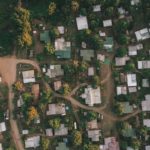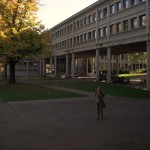4 Extraordinarily Helpful Tips For Learning A New Language

Language learning is not only my greatest academic interest, but also a lifelong passion. Few things in life thrill me more than learning or dabbling in a new foreign tongue, and one of my favorite parts of traveling is having the opportunity to speak (or sample) the local language.
Language acquisition provides an ability to understand and experience unfamiliar environments in ways not otherwise possible. However, being thrown headfirst into an environment where you neither speak the language nor are familiar with the country can be truly overwhelming, and many foreigners in these situations end up clinging to expat groups without ever venturing out their established comfort zone.
This is possibly the biggest mistake you could make! As someone who has studied over a half-dozen languages both formally and independently, I’ve learned that while learning a language can be challenging and frustrating, much of your success hinges on having the right attitude and strategy.
This is particularly true when you find yourself having to learn the local language from scratch in a short amount of time. After studying a year’s worth of beginner Azerbaijani in an intensive, two-month program, I found the following strategies to be especially helpful:
4 Extraordinarily Helpful Tips For Learning A Local Language
1. Flashcards & notebooks are your best friends
I’ll admit it: I haven’t always been the best at writing down new vocabulary and making flashcards. But trust me, in my experience with language learning in all sorts of environments, this is one thing that I can basically guarantee will make a difference.
Consider keeping a small notebook with you at all times. Here, you can write down important or interesting new words every time they come up: in class, when you’re watching a TV show, shooting the breeze with your host family, etc. Then make flashcards with these new words, and break them out every time you find yourself with what my Ancient Greek professor would refer to as “dead time” (i.e. waiting for the bus, waiting for the shower water to get hot, waiting for your crappy WiFi to load your pirated TV show).

Yes, it’s dorky, but yes, those words will absolutely come up in your daily life sooner or later, and you’ll be so glad you took the effort to write them down and learn them. I can’t emphasize enough how many times I’ve made a flashcard with a word I sincerely thought I’d never use, only to have it come up everywhere in my life before I knew it. There’s some sort of language-acquisition term for this (which, of course, I can’t recall), but the phenomenon never ceases to amaze me.
2. Be realistic about the materials you may have access to
This is particularly important if you are studying an LCTL (less-commonly taught language). Unlike Spanish-language textbooks in the States, which come from a multi-billion dollar industry, language-learning materials for LCTLs are often subpar (and that may be putting it gently). Though I studied Azerbaijani in a prestigious, well-run program, I found the lack of good materials to be one of the most frustrating hurdles in becoming proficient in the language.
My Azerbaijani-English dictionary, one of the best available, says “distionary” on the cover, and my Elementary Azerbaijani textbook was completely in Azerbaijani and presented the material in a very haphazard way. For instance, there was essentially nothing systematic about how the vocabulary was presented, and these elementary grammar exercises would randomly contain terms like “magnifying glass,” “taking an oath”, and “stock market.” This was just exasperating.
My best advice here is to be patient, and to do the best you can with your limited resources. If you are living in a country where there are, or have recently been, Peace Corps volunteers, try getting in touch with one of them. Peace Corps often creates their own resources and materials for PCVs, far superior than what is often available elsewhere, which was the case in Azerbaijan.
4 Extraordinarily Helpful Tips For Learning A Local Language.
3. Put yourself out there!
This is maybe one of the toughest tips on the list to actually stick to, and I’ll admit that I don’t have the best track record. Using new words and making yourself understood, especially when you had no knowledge of the target language before getting onsite, can seem like the biggest challenge.
I spent one summer doing research in Israel’s Russian-speaking community, and found myself clinging to that environment, where I felt at ease. I frequented the Russian supermarkets, where my thoughts weren’t consumed with “what if they start yelling at me and I don’t understand?” In Azerbaijan, a former Soviet Republic where Russian is still widely used, I found myself again relying heavily on the language to communicate. But once I started taking (gradual) baby steps away from the shallow end, I found how rewarding it was to not rely on what I already knew. Beginning with food orders and graduating to asking directions, making small talk, and trying to be funny, I finally got to the point where I felt like I could survive with Azerbaijani alone.
4. Be patient with yourself.
Have I mentioned that learning a new language is frustrating? One of the best things you can do that will make your experience more positive is to embark on your language-learning journey knowing the following: some days you’ll feel like you have the language down, and some days you’ll feel hopeless, that your progress has completely plateaued and that you’re never going to learn the language.
Set realistic goals, and make sure to celebrate the small victories, from memorizing every word in your new batch of flashcards to successfully eavesdropping on a nearby conversation. No matter how tough it was in the beginning, I can assure you that these vexations are ultimately trivial in comparison to the satisfaction and opportunities one can gain from increased linguistic proficiency and cultural knowledge.
These are the best tips I have. Many of which have come from my own experiences both struggling with and excelling in learning new languages.








